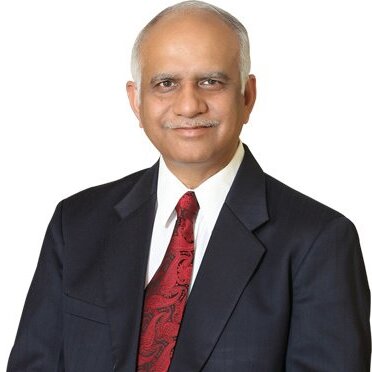Coronary Angioplasty - Indications, Benefits, Risks, Results
Dr. Aman Priya Khanna

Treatment Duration
45 Minutes
------ To ------60 Minutes
Treatment Cost
₹ 1,35,000
------ To ------₹ 4,10,000

Table of Contents
- Anatomy and Physiology of Coronary Arteries
- What is coronary angioplasty?
- Who needs coronary angioplasty?
- Coronary Angioplasty Procedure
- Before and On the Day of Coronary Angioplasty
- After Coronary Angioplasty and Recovery
- Benefits of Coronary Angioplasty
- Risks and Complications of Coronary Angioplasty
- Risks of Delaying Coronary Angioplasty
- Takeaway
According to a study by Arramraju et al., 2020, 4,38,351 coronary angioplasty procedures were performed in India in 2018. This number highlights the critical role of the technique in managing heart diseases. The minimally invasive approach is designed to open blocked coronary arteries and improve blood flow to the heart.
Percutaneous transluminal coronary angioplasty offers patients faster recovery and less discomfort than traditional open-heart surgery. The blog discusses the procedure, types, and recovery of this life-saving operation. Continue reading to learn more.
Procedure Name | Coronary Angioplasty |
Alternative Name | Percutaneous transluminal coronary angioplasty (PTCA), percutaneous coronary intervention (PCI), balloon angioplasty |
Conditions Treated | Coronary artery disease |
Benefits of Procedure | Shorter hospital stay, quicker recovery, reduced symptoms |
Treated By | Cardiologist |
You can check Coronary Angioplasty Cost here.
Anatomy and Physiology of Coronary Arteries
The coronary arteries deliver oxygen-rich blood to the heart muscle and the rest of the body. They stem from the aorta, the main artery in the body. There are two primary coronary arteries:
Right Coronary Artery (RCA): It supplies blood to the right atrium (upper chambers) and right ventricle (lower chambers). The branches of RCA provide blood to the sinoatrial (SA) and atrioventricular (AV) nodes. These nodes regulate heart contractions through electrical signals.
Left Main Coronary Artery (LMCA): This artery supplies oxygenated blood to the left atrium and ventricle (distributes blood throughout the body).
Coronary Angioplasty Videos by HexaHealth
Expert Doctors (10)
NABH Accredited Hospitals (10)


What is coronary angioplasty?
Coronary angioplasty is a procedure used to open blocked or narrowed coronary arteries. The technique uses a tiny balloon to widen the artery and improve blood flow. It is generally followed by stent placement (a small wire mesh tube that keeps the artery open).
Conditions Treated With Coronary Angioplasty
The coronary angioplasty procedure is vital for heart conditions that compromise blood flow to the heart muscle. These include:
Coronary Artery Disease: It results from the hardening or narrowing of blood vessels caused by atherosclerosis (cholesterol and fat buildup in the artery wall).
Heart Attack: The procedure is an emergency treatment to open blocked arteries and restore blood flow.
Who needs coronary angioplasty?
As mentioned earlier, coronary balloon angioplasty is for patients with coronary artery disease. After careful evaluation, the doctor may recommend this procedure for patients with the following:
Experiencing angina (chest pain) due to narrowed coronary arteries
Did not respond to medications or lifestyle changes aimed at improving heart health
Had a heart attack due to a completely blocked coronary artery
Coronary Angioplasty Procedure
Percutaneous transluminal coronary angioplasty generally takes 30 minutes and 2 hours to complete. While the exact procedure can differ based on the patient’s condition, the general steps of the treatment are as follows:
The patient is made to lie on their back on the operating table.
A local anaesthetic is administered to numb the catheter insertion site.
A thin, flexible tube (catheter) is inserted through a blood vessel in the groyne, wrist, or arm. It is carefully guided to the blocked coronary artery using X-ray imaging.
A special dye is injected through the catheter to make the inside of the arteries visible on X-ray, highlighting the blockage.
A tiny balloon affixed to the tip of the catheter is expanded at the blockage site, pressing the plaque against the artery wall and widening the artery.
Often, a stent is placed in the newly opened segment of the artery to help keep it open.
Once the artery is open, the balloon and catheter are removed.
Before and On the Day of Coronary Angioplasty
Before under going coronary angioplasty, patients are guided through necessary preparations to facilitate a successful and efficient procedure. This preparatory phase is essential for reducing potential complications.
Before Coronary Angioplasty
Preparing for a planned angioplasty surgery begins well before the day of the procedure. Patients should inform their doctor if they are pregnant. Furthermore, this phase includes discussions and instructions regarding the following:
Parameters | Prerequisites |
Pre-op Assessment |
|
Risk Evaluation |
|
Fasting | 6 hours before surgery |
Medications | Stop blood-thinning medications |
Anaesthesia Selection | Local |
On the Day of Coronary Angioplasty
Patients should follow all provided instructions closely. The following is what they can expect on the day of the procedure:
Parameters | Prerequisites |
Consent | Mandatory |
Surgical Preparation |
|
Physical Evaluation | Vitals check-up (breathing, blood pressure, heart rate, etc.) |
IV Line | Yes, to inject medicines or fluids |
After Coronary Angioplasty and Recovery
Recovery from coronary angioplasty involves initial close monitoring and then a return to daily activities within a week. The following are the common care guidelines to be followed in the hospital and at home post-surgery:
In Hospital Recovery
Depending on the reason for the procedure, patients may return home the same day or stay in the hospital overnight. They can expect the following in the hospital:
Regular checks on blood pressure, heart rate, and oxygen levels to ensure stability.
Careful monitoring of the catheter insertion site for signs of infection or bleeding.
Administration of pain relief medication if required.
Encouragement of gradual movement under supervision to promote circulation.
Providing information on post-discharge care, medications, lifestyle changes, and follow-up appointments.
At-home Recovery
Patients should have someone to drive them home after the procedure. Once home, they should follow these instructions:
Drink plenty of water to flush the imaging dye from the body.
Take prescribed medications, especially antiplatelets, as directed to prevent blood clots.
Keep the insertion site clean and dry to prevent infection.
Refrain from swimming or using bathtubs until the skin heals.
Do not lift heavy objects or engage in strenuous activities for at least 24 hours after the procedure.
Participate in a cardiac rehabilitation program if recommended by the doctor to improve heart health and recovery.
First Follow-Up Appointment
The first follow-up appointment after coronary angioplasty typically occurs one week after the procedure. 6 During this visit, the doctor may do the following:
Check recovery progress and assess the healing of the catheter insertion site
Perform blood and imaging tests during this visit to evaluate the functioning of the heart
Benefits of Coronary Angioplasty
Coronary angioplasty is a significant medical advancement that provides numerous benefits for patients with coronary artery disease. Here are its main advantages:
Shorter hospital stays and quicker recovery times
Improves blood flow to the heart muscle
Reduces symptoms of heart disease, such as chest pain and shortness of breath
Life-saving emergency treatment in the case of a heart attack
Reduces the risk of another heart attack
Risks and Complications of Coronary Angioplasty
Coronary angioplasty, while a critical procedure for many with heart disease, carries certain risks. Understanding these can help patients and doctors make informed decisions about undergoing coronary angioplasty:
Restenosis: The artery may narrow again. The risk is higher when no stent is used. This may sometimes require another angioplasty or alternative treatment.
Blood Clots: Stents can sometimes cause blood clots to form, leading potentially to a heart attack. Medicines are used to reduce the risk.
Bleeding: It can occur at the catheter insertion site.
Other rare complications of the procedure may include the following:
Heart attack
Stroke
Coronary artery damage
Kidney damage
Arrhythmias (abnormal heart rhythms)
When is consultation needed with a doctor?
After coronary angioplasty, monitoring for any signs that might require medical attention is crucial. Effective communication with experts ensures timely intervention, preventing complications. Patients should contact their doctor if they experience the following:
Significant bleeding or swelling at the catheter insertion site
Chest pain
Fever or chills
Coolness, weakness, or numbness where the catheter was inserted
Difficulty breathing
Persistent swelling or pain
Dizziness or fainting
Risks of Delaying Coronary Angioplasty
Delaying percutaneous transluminal coronary angioplasty can have severe consequences for patients with coronary artery disease. These risks include:
Symptoms like chest pain (angina) and shortness of breath may worsen, reducing quality of life.
Delay can lead to worsening of blockages, potentially causing a heart attack.
Prolonged lack of adequate blood flow can damage heart muscles, leading to heart failure.
Cost of Coronary Angioplasty
The coronary angioplasty cost in India starts at ₹ 1,35,000 and can go up to ₹ 4,10,000. The average price of the procedure is ₹ 3,30,000. Various healthcare facilities offer this life-saving procedure, ensuring patients can access affordable and quality care.
Coronary Angioplasty | Estimated Cost |
Minimum | ₹ 1,35,000 |
Maximum | ₹ 4,10,000 |
Factors that influence the angioplasty cost in India include:
Surgeon’s Experience: Cardiologists with extensive experience may have higher fees.
Type of Angioplasty: The complexity, such as single or multi-vessel angioplasty, affects the cost.
Additional Procedures: Prices increase if additional interventions, like stent placement, are required alongside balloon angioplasty.
Type of Hospital: Private facilities generally have higher costs than government centres.
Hospital Location: Hospitals in metropolitan areas may charge more due to a higher cost of living.
Takeaway
Coronary angioplasty effectively opens blocked arteries, reducing cardiovascular symptoms and enhancing life quality. It serves as a key treatment for preventing heart attacks by improving artery blood flow. This minimally invasive procedure is crucial for cardiac health.
At HexaHealth, we connect patients with leading medical facilities for angiography and angioplasty, ensuring quality care from diagnosis to recovery. Our dedication to patient support means access to the latest in heart health treatments. If you or your loved ones are looking to undergo PTCA, contact HexaHealth for top-notch care.
Suggested Reads
| Coronary Artery Bypass Disease (CABG) | Ischemic Heart Disease |
| Homeopathic Medicine for Cleaning Arteries | Heart Failure |
Frequently Asked Questions (FAQ)
What is coronary angioplasty?
Coronary angioplasty is a procedure that opens narrowed or blocked coronary arteries to improve blood flow to the heart. It involves inflating a small balloon inside the artery, often followed by placing a stent to keep the artery open.
What are the different types of coronary angioplasty procedures?
There are various types of coronary angioplasty, each with its specific applications. These types include:
Balloon angioplasty (inflating a balloon to widen the artery).
Coronary artery stent (placing a stent to keep the artery open).
Laser coronary angioplasty (uses laser energy to vaporise plaque within coronary arteries).
How is a coronary angioplasty performed?
Percutaneous transluminal coronary angioplasty is performed through a small incision, usually in the wrist or groyne. The steps involved in the operation are as follows:
A catheter with a balloon at its tip is guided to the narrowed artery.
The balloon is then inflated at the blockage site to widen the artery.
A stent is often placed to keep the artery open.
How much does an angioplasty procedure cost on average?
The angioplasty cost varies widely based on location, hospital, and the type of procedure performed. Prices can range from ₹ 1,35,000 to ₹ 4,10,000. The average expense is ₹ 3,30,000.
Is angioplasty a high-risk procedure?
Angioplasty is generally considered safe. However, it may carry some risks, such as:
Bleeding at the catheter insertion site
Blood clots
Re-narrowing of the artery
Coronary artery damage
Serious complications are rare. Moreover, the benefits of the procedure often outweigh the risks.
In how much time can I recover after coronary angioplasty?
Recovery after a coronary angioplasty procedure varies, but patients often return to normal activities within a week. For a smooth recovery, it is important to avoid strenuous activities and follow the doctor’s advice.
What medications are prescribed after coronary angioplasty?
Medications post-angioplasty include blood-thinning drugs like aspirin to prevent blood clots. These are taken for up to a year after the procedure.
Can lifestyle changes help after coronary angioplasty?
Lifestyle changes post-angioplasty are crucial for maintaining the benefits of the procedure and preventing future heart issues. These include:
Adopting a heart-healthy diet
Regular exercise
Quitting smoking
Managing stress
Maintaining a healthy weight
What are the success rates of coronary angioplasty procedures?
Success rates of coronary angioplasty vary based on several factors, including the extent of blockage and the patient’s overall health. However, generally, it is a highly successful procedure with success rates of 90% to 95% in opening narrowed arteries.
How much blockage requires a stent?
A stent is often required for blockages of 70% or more in major arteries. It helps keep the artery open, improves blood flow, and relieves symptoms like angina.
Can 90% blockage be cured with a stent?
Yes, a 90% blockage can be treated effectively with a stent. The procedure involves inserting and expanding the stent within the artery to restore normal blood flow.
What is the cost of coronary angioplasty surgery?
The coronary angioplasty cost in India ranges between ₹ 1,35,000 to ₹ 4,10,000, depending on various factors. However, these prices are estimates. Patients are advised to consult HexaHealth experts for up-to-date expenses.
What is the new technique of angioplasty to remove blockage?
Recent advancements in angioplasty techniques focus on improving precision and outcomes for patients with coronary artery blockages. These innovations include:
Optical Coherence Tomography (OTC)-guided angioplasty
Intravascular lithotripsy
Laser coronary angioplasty
How does angioplasty compare to coronary artery bypass grafting (CABG)?
Angioplasty is less invasive than CABG and is suitable for fewer blockages or patients at higher surgical risk. CABG is often recommended for multiple blockages or severe coronary artery disease. Heart bypass in patients with diabetes may offer better survival outcomes.
What is the difference between angioplasty and stent placement?
In the comparison of angioplasty vs stent, angioplasty opens narrowed or blocked arteries by inflating a balloon. On the other hand, stent placement involves inserting a tube within the artery during angioplasty to ensure it stays open. Both aim to enhance blood flow.
Are there any dietary restrictions after coronary angioplasty?
After coronary angioplasty surgery, dietary restrictions usually include a heart-healthy diet low in saturated fats. Emphasis should be on fruits, vegetables, and whole grains to support heart health and recovery.
Can I resume normal activities after coronary angioplasty?
Following coronary angioplasty, patients can typically resume normal activities within a week. However, they are advised to avoid strenuous exercise and heavy lifting for a specified period as per their doctor’s advice.
How often do I need to follow up with my cardiologist after coronary angioplasty?
After undergoing coronary angioplasty, it is essential to follow up with the cardiologist. The initial visit is scheduled for one-week post-procedure. This is followed by regular check-ups every three to six months for the first year.
How long a person can live after angioplasty?
The longevity of a person after angioplasty depends on multiple factors, including age and adherence to prescribed medications and lifestyle changes. The survival rates after surgery are 99.5% at one year and 97.4% after five years.
More Treatment options
References
All the articles on HexaHealth are supported by verified medically-recognized sources such as; peer-reviewed academic research papers, research institutions, and medical journals. Our medical reviewers also check references of the articles to prioritize accuracy and relevance. Refer to our detailed editorial policy for more information.
- Arramraju SK, Janapati RK, Sanjeeva Kumar E, Mandala GR. National interventional council data for the year 2018-India. Indian Heart Journal. 2020 Sep;72(5):351–5.

- Cleveland Clinic. Coronary Arteries: Anatomy and Function [Internet]. Cleveland Clinic. 2022.

- Mayo Clinic Staff. Coronary angioplasty and stents - Mayo Clinic [Internet]. Mayoclinic.org. 2021.

- NHS Choices. Overview - Coronary angioplasty and stent insertion [Internet]. NHS. 2019.

- Johns Hopkins Medicine. Angioplasty and Stent Placement for the Heart [Internet]. Johns Hopkins Medicine. 2019.

- Rassaf T, Steiner S, Kelm M. Postoperative Care and Follow-Up After Coronary Stenting. Deutsches Aerzteblatt Online [Internet]. 2013 Feb 1;110(5).

- Cleveland Clinic. Percutaneous Coronary Intervention (PCI) [Internet]. Cleveland Clinic. 2021.

- Mayo Clinic. Coronary artery disease [Internet]. Mayo Clinic. 2022.

- Types [Internet]. stanfordhealthcare.org.

- Warning signs when an artery is blocked, and how to fix it | Heart | UT Southwestern Medical Center [Internet]. utswmed.org.

- What is a Stent? [Internet]. www.heart.org.

- Optical Coherence Tomography (OCT) Guided Coronary Stent Implantation Compared With Angiography: A Multicenter Randomized Trial in PCI [Internet]. American College of Cardiology. [cited 2024 Apr 22].

- Unclogging heart arteries using sonic waves [Internet]. utswmed.org.

- Rossi L, Carbonieri E, Rossetti L, Tomei R, Franceschini L, Tomé S, et al. [Long-term prognosis after coronary angioplasty in relation to the presence of modifiable factors of coronary risk]. Cardiologia (Rome, Italy) [Internet]. 1995 Feb 1;40(2):93–9.

Last Updated on: 22 April 2024
Reviewer

Dr. Aman Priya Khanna
MBBS, DNB General Surgery, Fellowship in Minimal Access Surgery, FIAGES
14 Years Experience
Dr Aman Priya Khanna is a well-known General Surgeon, Proctologist and Bariatric Surgeon currently associated with HealthFort Clinic, Health First Multispecialty Clinic in Delhi. He has 14 years of experience in General Surgery, Proctolo...View More
Author

Sparshi Srivastava
B.Tech Biotechnology (Bansal Institute of Engineering and Technology, Lucknow)
2 Years Experience
An ardent reader, graduated in B.Tech Biotechnology. She was previously associated with medical sciences secondary research and writing. With a keen interest and curiosity-driven approach, she has been able to cont...View More
Coronary Angioplasty in Top Cities
Coronary Angioplasty Cost in Top Cities
Latest Health Articles




















 Kumud Rai max ppgn)











